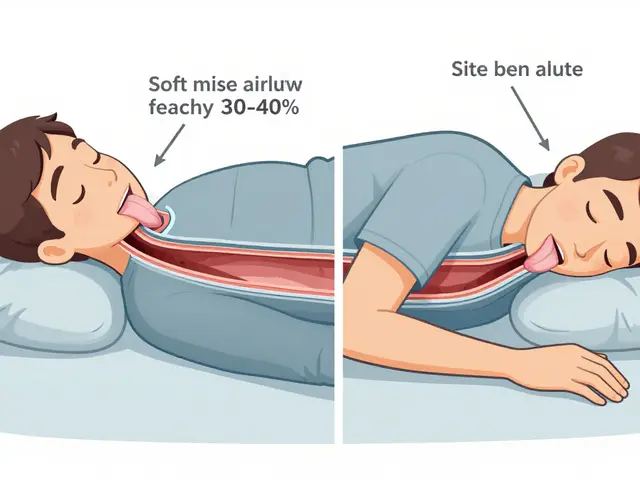Antibiotics: What They Treat, How to Use Them Safely
Antibiotics have changed medicine. They cure bacterial infections that used to be deadly. But they can also cause harm if used wrong. This page gives clear, practical advice on when to use antibiotics, common types you’ll see, side effects to watch for, and how to buy drugs safely online.
When do you need antibiotics? Only for bacterial infections. Sore throats, some sinus infections, ear infections, urinary tract infections and bacterial skin infections are typical cases. Viral illnesses—like colds, flu or most sore throats—don’t get better with antibiotics. Your doctor should confirm a bacterial cause or risk before prescribing.
Common classes you will hear about include penicillins, cephalosporins, macrolides, tetracyclines and fluoroquinolones. Each class treats different bacteria and has pros and cons. For example, penicillins are often first-line for many infections but people with severe penicillin allergy must avoid them. Fluoroquinolones work broadly but carry higher risks for tendons and nerves.
Finish the full course you are given, even if you feel better. Stopping early can leave some bacteria alive and help resistance spread. If side effects are bad—severe diarrhea, rash, breathing problems—stop and contact a doctor right away. Keep a list of your current medicines and allergies to reduce risky interactions.
Antibiotic resistance is real and rising. That means common infections can become harder or impossible to treat. Avoid pressuring clinicians for antibiotics, don’t share leftover pills, and never use antibiotics meant for animals. Vaccines, hand washing and sensible prescribing slow resistance at community level.
Buying antibiotics online? Be careful. Legitimate pharmacies require a prescription and show clear contact info, registration and a licensed pharmacist. Watch out for sites that sell without prescriptions, offer suspiciously low prices, or hide their address. Counterfeit or poor-quality meds can be dangerous, so verify credentials and read independent reviews.
When you travel or buy from abroad, check your country’s import rules. In the UK and US there are specific rules around personal imports and controlled drugs. If in doubt, ask your doctor or a registered pharmacist. For online telehealth services, confirm the provider is licensed where they operate and that they require an honest medical review.
Holding on to leftover antibiotics “just in case” is risky. Proper disposal helps public health and stops accidental use. Most pharmacies offer take-back programs. If that’s not possible, mix pills with an unpleasant substance, seal them and toss them in household trash per local rules.
Questions? Start with your GP or pharmacist. If you buy meds online, use well-known pharmacies, keep records and report problems. Use antibiotics wisely—time tested, powerful, but only when they truly help.
Quick tips
Quick tips: always finish prescribed courses; don’t pressure for antibiotics; ask if tests like throat swabs or urine cultures are needed; tell your clinician about pregnancy, breastfeeding and any chronic conditions; avoid unnecessary broad‑spectrum antibiotics when a narrow drug works; store medicines as labeled and never give your antibiotics to children or friends. If a side effect seems serious, stop the drug and seek medical help immediately and keep emergency numbers handy.





